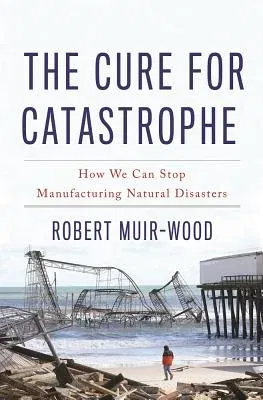We can't stop natural disasters but we can stop them being disastrous.
One of the world's foremost risk experts tells us how.
Year after year, floods wreck people's homes and livelihoods,
earthquakes tear communities apart, and tornadoes uproot whole towns.
Natural disasters cause destruction and despair. But does it have to be
this way?
In The Cure for Catastrophe, global risk expert Robert Muir-Wood
argues that our natural disasters are in fact human ones: We build in
the wrong places and in the wrong way, putting brick buildings in
earthquake country, timber ones in fire zones, and coastal cities in the
paths of hurricanes. We then blindly trust our flood walls and disaster
preparations, and when they fail, catastrophes become even more deadly.
No society is immune to the twin dangers of complacency and heedless
development.
Recognizing how disasters are manufactured gives us the power to act.
From the Great Lisbon Earthquake of 1755 to Hurricane Katrina, The Cure
for Catastrophe recounts the ingenious ways in which people have fought
back against disaster. Muir-Wood shows the power and promise of new
predictive technologies, and envisions a future where information and
action come together to end the pain and destruction wrought by natural
catastrophes. The decisions we make now can save millions of lives in
the future.
Buzzing with political plots, newfound technologies, and stories of
surprising resilience, The Cure for Catastrophe will revolutionize the
way we conceive of catastrophes: though natural disasters are
inevitable, the death and destruction are optional. As we brace
ourselves for deadlier cataclysms, the cure for catastrophe is in our
hands.

